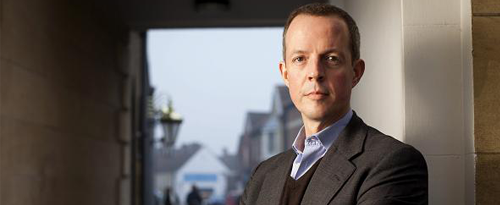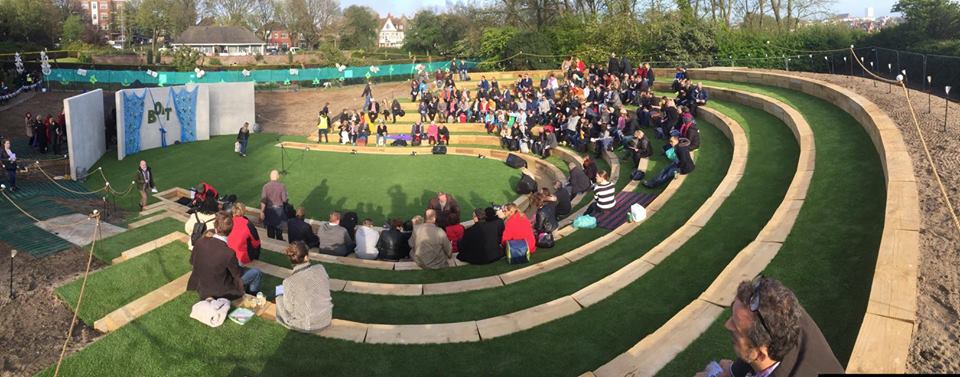I think its fair to say that those tasked with running the post-16 education sector in England and Wales have, quite quickly, started to notice the wheels coming off the policy train. Since the May election, a raft of statements, reports and reforms have been issued by the departments of both Education (DfE) and Business, Innovation & Skills (BIS) that call into question the efficacy of colleges and training providers.
The conversations about effectiveness and quality are not new and are obviously important; Alison Wolf sounded klaxons about vocational education back in 2011 resulting in a significant new funding regime and Ofsted produced a very luke warm annual evaluation on the sector last December. The tone does seem to have shifted in 2015, with a hurried air of concern, now that it is clear that continual drip-feed cuts to the further education (FE) and skills budget over the last decade have resulted in a big shrinking of sixth form college capacity across the board and the recent news from the National Audit Office that 70 out of the UK's 382 FE colleges are just staving off bankruptcy. Whatever your view on the academy and free school plan, it has dented the existing education infrastructure exposing Westminster hindsight rather than forethought.
The conversations about effectiveness and quality are not new and are obviously important; Alison Wolf sounded klaxons about vocational education back in 2011 resulting in a significant new funding regime and Ofsted produced a very luke warm annual evaluation on the sector last December. The tone does seem to have shifted in 2015, with a hurried air of concern, now that it is clear that continual drip-feed cuts to the further education (FE) and skills budget over the last decade have resulted in a big shrinking of sixth form college capacity across the board and the recent news from the National Audit Office that 70 out of the UK's 382 FE colleges are just staving off bankruptcy. Whatever your view on the academy and free school plan, it has dented the existing education infrastructure exposing Westminster hindsight rather than forethought.
For those of you who exist outside of the FE bubble, it can seem like a strange and complicated cocktail of provision and public funding (to be fair, you don’t have to be outside of it to feel that).
 Secondary schools can have built-in sixth-form colleges, now competing more than ever with standalone sixth forms - both are the traditional home of A Levels and pre-university academia, but are increasingly offering GCSE re-takes, vocational study and engagement support for the low attaining in order to boost numbers (and cash).
Secondary schools can have built-in sixth-form colleges, now competing more than ever with standalone sixth forms - both are the traditional home of A Levels and pre-university academia, but are increasingly offering GCSE re-takes, vocational study and engagement support for the low attaining in order to boost numbers (and cash).General FE colleges now often have sprawling campuses across big towns or counties, with offers of everything for everyone - A Levels, BTECs, NVQs, Apprenticeships, Traineeships, Study Programmes, adult & community learning, GCSEs, English for foreigners, commercial business training, evening classes - with a number of income streams from the DFE, BIS, DWP, local authorities and the European Union.
And then, you have over 400 independent training providers - usually private businesses or charities - that draw down over well over £1billion of government funding to offer competition to the colleges with more niche and specialist provision, smaller classes and more bespoke, industry-led training. Over 70% of Apprenticeships are delivered by private providers, and this is the only part of the post-16 education budget not expected to bear the £900million of cuts over the next 5 years.
Last week, the government announced a 'major reform’ review process, that will seek to move across the country region-by-region auditing college provision and impact. Some expected outcomes of the review seem to have been pre-determined with expected "fewer, often larger, more resilient and efficient providers” that might be centres of “greater specialisation” and “expertise” (a thinly-veiled criticism of the generalist nature that colleges have tended to foster in recent years). It is hard to know what conversations are happening behind closed doors, but at a recent conference of independent training providers, Skills Minister Nick Boles made it clear that the current model for FE colleges is not something favoured by him or colleagues.
I’ve worked in post-16 vocational and work-based learning for nearly 6 years, as a frontline and strategic manager - and more recently developing leadership training resources for managers in the sector and as a project consultant with a trade body representing nearly 100 colleges and providers. In my view, the inevitable forthcoming changes are huge. We could well see colleges merging to form giant, regional conglomerates delivering provision for over 40,000 students - potentially bigger than most universities. My prediction is that leadership will be ever-concentrated and increasingly political, with ‘specialisation’ being decided by national agendas or by the Local Enterprise Partnerships (who are playing an increasingly bigger role in devolved spending). More learning will move into the digital space, and vocational skills level courses will go higher and higher to compete with degrees. Those that could stand to lose the most are the young people who leave school with very little and are not yet ready for the workplace; all providers will have a duty to ensure engagement provision is fought for.
It will be an interesting time for the independent providers, who do serve a very real need in offering smaller-scale, responsive provision that can often be more personalised and more suitable for learner who need more support - if the colleges are going to become specialists in particular industry areas what will that do to the historical specialisms of the providers who are there to teach skills in plumbing, hairdressing, childcare, digital media, flood-defense etc?
They are not kidding when they state the need for resilience. FE leaders might often feel at the whim of many different masters (students, parents, employers, 3+ government departments, Ofsted, auditors, local authority), delivering more for less. The message from the government is that, currently, colleges are too big to fail but many are failing financial stress-tests. Obviously not seen quite as business critical as the banks, there are only small bailouts on the cards for the ones crashing hardest, so it is in an interesting answer to propose making them into study behemoths. The inevitable centralisation of merged college operations will be the money-saver, but could harm innovation and the bolder, broader moves that the better leaders can take. Independent providers have the flexibility to fill gaps, but often lack scalability or financial security to offer provision that won’t have maximum take-up.
This is one to watch at the moment, but the shape of post-16 education is being squished and reformatted now and for the foreseeable future. It won’t garner the news headlines anything like if similar reform were to happen to schools or universities, because there is still the cultural attitude that college beyond school is optional anyway, but as of September 2015, it will be technically illegal not to be in at least 15 hours of training, college or work (with accredited training) per week if you’re 16 or 17.
I’m watching the leaders, the movers and the shakers - looking for the values, the integrity and the professional will to steer these organisations through choppy waters. In times of crisis, behaviors need to be in-tune, with trust and accountability at the fore (definitely different to the banking sector) - working in collaboration with other providers to continue to innovate in delivery and quality.
---
Richard Freeman is Director and Lead Consultant at always possible.
For information about getting support with organisational development, educational policy, leadership & resilience, please visit alwayspossible.co.uk or email blog@alwayspossible.co.uk









